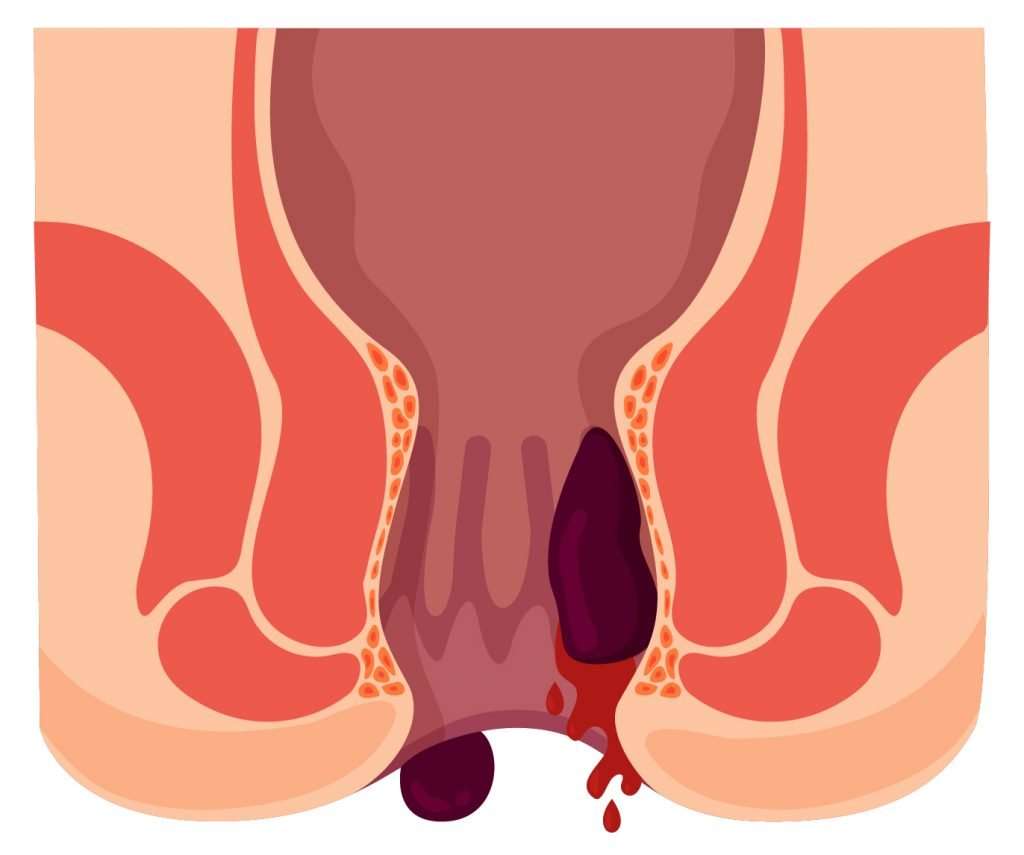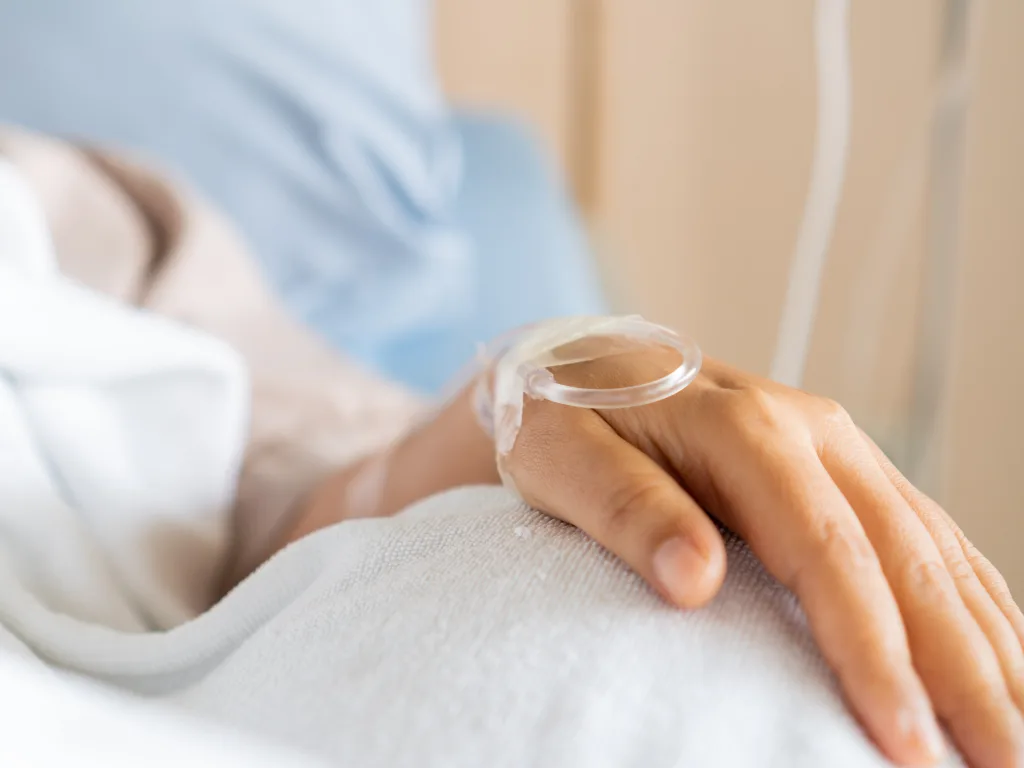No, hemorrhoids cannot kill you. However, if left untreated, they can cause serious health problems and should be taken seriously. Hemorrhoids are swollen veins in the lower rectum and anus that can cause pain, itching, burning, and bleeding. While they’re not life-threatening, they can become serious if left untreated.
In extreme cases, hemorrhoids can cause a person to become anemic due to chronic blood loss. If not treated in a timely manner this condition could lead to low blood pressure or even shock. It is important to seek medical attention for any rectal bleeding as it can also be a sign of other diseases such as colorectal cancer or anal canal cancer.
In most cases however, treatment for hemorrhoids is fairly simple and can be done at home with over the counter medications such as topical creams and ointments or with lifestyle changes such as increasing fiber intake and drinking more water to help soften stool. Surgery is usually only necesary in extreme cases that don’t respond to other treatments.
It’s important to take note of any symptoms you may experience from hemorrhoids so you can properly address them before they worsen. Taking care of yourself now will help prevent more serious complications down the line!
Consequences of Leaving Hemorrhoids Untreated
If hemorrhoids are left untreated, they can become worse over time. Depending on the type of hemorrhoid, it may become larger, more painful and swollen, and cause increased itching and bleeding. In severe cases of prolapsed internal hemorrhoids, the tissue may become trapped outside the anus, leading to significant irritation and pain. Without treatment, these symptoms can worsen and cause further complications.

Can Hemorrhoids Lead to Serious Health Complications?
Hemorrhoids can rarely lead to serious complications. In some cases, chronic blood loss from hemorrhoids can result in anemia, which is a condition in which your body does not have enough healthy red blood cells to carry oxygen to your cells. Other potential complications of hemorrhoids include thrombosis, infection, and tissue death. If you experience any concerning symptoms such as severe pain, itching, or bleeding, it is important to speak with your doctor right away.
Can Hemorrhoids Develop Into Cancer?
No, hemorrhoids canot turn cancerous. Hemorrhoids are swollen veins in the lower rectum or anus, while colorectal cancer is a tumor that grows in the lining of the colon or rectum. While they can share similar symptoms such as rectal bleeding, itching, and pain, they are two distinct conditions with different causes. Hemorrhoids are caused by straining during bowel movements, chronic constipation or diarrhea, pregnancy, or aging. Colorectal cancer may be caused by genetic predisposition, age, lifestyle factors like smoking and diet, and certain medical conditions. If you have any concerns about your symptoms or risk factors for either condition, it is important to talk to your doctor right away.
When Is Hemorrhoid Treatment Considered an Emergency?
Hemorrhoids become an emergency when they burst, leading to excessive blood loss. It is important to seek medical attention immediately if you experience a hemorrhoid burst. You may experience dizziness, faintness, or hypotension/shock due to the blood loss and it is important to have this checked out as soon as possible. Additionally, rectal bleeding can be a sign of other serious diseases such as colorectal and anal canal cancer, so it is essential that any rectal bleeding is evaluated by a healthcare provider.
When Is Surgery Needed for Hemorrhoids?
Grade 3 and Grade 4 hemorrhoids typically require surgery. Grade 3 hemorrhoids protrude from the anus during bowel movements, but can be pushed back inside manually. Grade 4 hemorrhoids remain outside of the anus and cannot be pushed back in. Surgery for these grades of hemorrhoids typically requires a general or local anesthetic, and a few days’ stay in the hospital. Recovery time off work after surgery will vary, depending on the individual’s health and the type of procedure performed.

Grade 4 Hemorrhoids: An Overview
Grade 4 hemorrhoids are the most severe type of hemorrhoid. They refer to a condition where the swollen veins protrude outside the rectum and cannot be pushed back inside manually. This is a very serious condition that requires immediate medical attention as it can lead to complications if not treated properly.
How to Make Hemorrhoids Worse
Hemorrhoids can become worse when you strain when having a bowel movement, sit for too long, or lift heavy items. Straining can case the veins around the anus to become swollen and inflamed, leading to pain and discomfort. Sitting for too long can cause the area to become irritated further. Additionally, lifting heavy objects increases pressure in the abdomen and around the anus which can worsen hemorrhoids. To prevent these symptoms from worsening, it is best to avoid straining while having a bowel movement, taking regular breaks if sitting for extended periods of time, and using proper lifting techniques when lifting heavy items.
Which Foods May Aggravate Hemorrhoids?
Foods that can trigger hemorrhoids include spicy or greasy foods, processed meats, dairy products, caffeine or sugary drinks, and alcohol. Eating too much of these types of foods can cause your stools to become harder, which can lead to straining during bowel movements. Eating a diet high in fiber is beneficial for reducing the risk of developing hemorrhoids. High-fiber foods include fruits and vegetables, whole grains, nuts and seeds, and legumes. Also try to drink plenty of fluids throughout the day to stay well hydrated and stay regular with your bowel movements.
Causes of Hemorrhoid Flare-Ups
Hemorrhoids are swollen veins in the lower rectum or anus that can become inflamed and cause discomfort. Flare-ups can be caused by a variety of factors, including increased pressure in the abdomen and pelvis, straining during bowel movements, sitting for long periods of time, pregnancy, obesity, or any other condition that increases abdominal pressure. In some cases, weakened tissue surrounding the veins can also contribute to flare-ups. Dietary canges like adding more fiber to your diet and drinking more water can help reduce symptoms associated with hemorrhoids. Additionally, topical creams and ointments may be used to provide temporary relief from itching and burning. If symptoms persist or worsen, it is important to contact your doctor who may recommend further treatment such as banding or surgery.
Can Hemorrhoids Be a Symptom of Other Conditions?
Yes, hemorrhoids can be a symptom of something else. Hemorrhoids are swollen veins in the lower rectum or anus, and can cause symptoms such as rectal bleeding; however, this same symptom can also be caused by other diseases, some of them serious. These include colon cancer, diverticulitis, Crohn’s disease, colitis and anal fissures. Other conditions that may have similar symptoms include polyps, ulcers or even an infection. If you experience any of these symptoms associated with hemorrhoids – such as rectal bleeding – it is important to seek medical attention so that proper diagnosis and treatment can be provided.
Can Hemorrhoids Be Permanent?
No, hemorrhoids cannot stay forever. Though large, painful hemorrhoids can take several weeks to heal, they will eventually go away on their own or with the help of treatment from a doctor. Pregnant patients may find that their hemorrhoids only go away after they give birth. In the meantime, there are many over-the-counter treatments that can provide relief from symptoms such as itching and swelling.
Is My Hemorrhoid Serious?
If you are experiencing any kind of discomfort, such as itching, burning, or pain, that does not improve within a week, it is time to seek medical care for your hemorrhoids. Additionally, if you notice any bleeding before, during, or after bowel movements, this could be a sign that your hemorrhoid is more serious. You should also be on the lookout for a bulge that could indicate a prolapsed hemorrhoid. If any of these symptoms occur in conjunction with fever, chills, abdominal pain or tenderness, nausea and vomiting or rectal discharge oher than stool and mucus it is important to seek medical attention right away as these could be signs of a more serious condition.
Hospitalization for Hemorrhoids: Is It Possible?
Yes, it is possible to be hospitalized for hemorrhoids. According to the National Institute of Diabetes and Digestive and Kidney Diseases (NIDDK), 266,000 people were hospitalized for treatment of hemorrhoids in 2010. Hospitalization may be necessary if a person experiences severe pain or bleeding from their hemorrhoids that can’t be managed with other treatments. People may also be hospitalized if they are at risk of developing complications due to their condition. Treatment during hospitalization may include medications, procedures such as rubber band ligation, or surgery to remove the hemorrhoids.

When is a Hemorrhoid Considered Too Large?
A hemorrhoid is too big when it begins to cause uncomfortable symptoms such as the feeling of something pushing against the anus, a sensation of something in that area, and pain or discomfort when sitting. In addition, if the person feels like their bowel isn’t empty after going to the bathroom, this may be an indication that the hemorrhoid has become too large. If any of these symptoms occur, it is best to seek medical attention for treatment.
Conclusion
In conclusion, it is important to note that hemorrhoids themselves are not life-threatening and, in most cases, can be managed with simple lifestyle changes. However, if left untreated or if complications arise due to a prolapsed hemorrhoid, it is possible for serious health issues such as anemia and hypotension/shock to occur. It is therefore important to seek medical assistance if you experience rectal bleeding or other symptoms associated with hemorrhoids.
